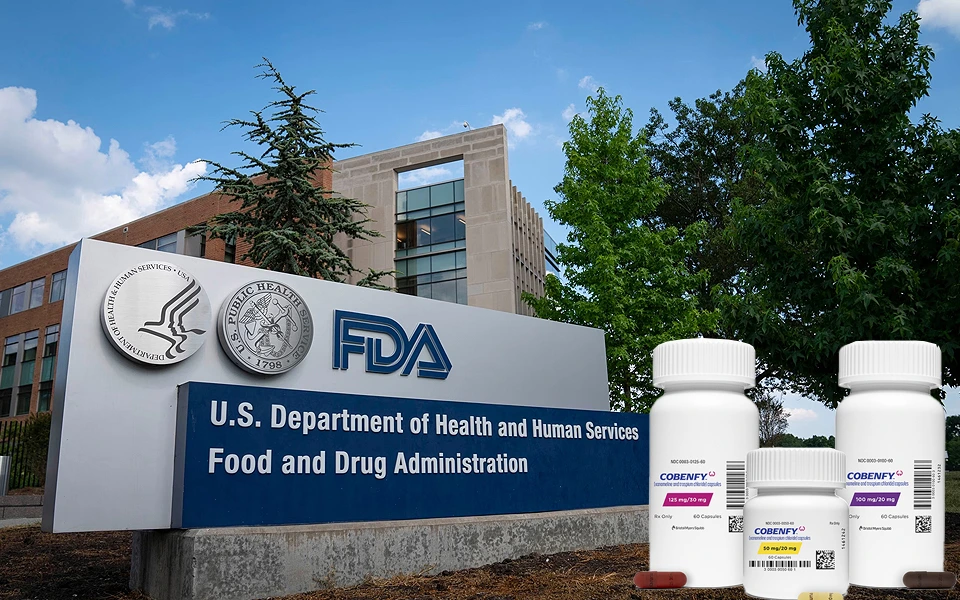Breaking New Ground for Treating Schizophrenia: Overview
The United States Food and Drug Administration’s recent piece of hot news is that it has given its nod to a new treatment for schizophrenia at the end of September in the year 2024. Known as Cobenfy or xanomeline-trospium chloride, it has been described to be the most memorable contribution to the treatment of schizophrenia in a very long time. Unlike all other antipsychotic drugs that are focused on dopamine, Cobenfy is one of its kind, acting directly on the cholinergic system, with the neurotransmitter being acetylcholine. This breakthrough might bring an honest hope to millions suffering from the dreadful pathology of schizophrenia, a chronic mental disorder that affects some 1% of the population in the world.
Why This Drug Is Revolutionary
Schizophrenia is one of the most significant mental disorders that present symptoms like hallucinations and delusions, and patients usually suffer from cognitive impairments. For decades, these symptoms were treated solely through medications that merely blocked dopamine receptors in the brain. Such drugs may be effective in controlling several symptoms, but invariably carry severe side effects: weight gain, metabolic problems, and cognitive dulling.
Cobenfy, Bristol Myers Squibb, acts indirectly on dopaminergic receptors by modulating the cholinergic receptor system and thus indirectly affects the neurotransmitter acetylcholine in relation to memory, learning, and cognitive function. The intent is to treat psychotic symptoms such as auditory hallucinations and paranoid thinking without the severe side effects associated with the conventional antipsychotics.
FDA Approval and Clinical Trials
The drug Cobenfy was approved by the FDA based upon two huge, double-blind, placebo-controlled clinical studies. In each of the studies, patients were adults with schizophrenia according to DSM-5 criteria. Two five-week studies involved hundreds of adult patients. The results of both studies proved that the drug works as it compared PANSS scores, the most widely used measure of schizophrenia symptoms. The scores improved in the patients treated with Cobenfy than those in the placebo, which signifies that patients who had improved Cobenfy significantly reduced their symptoms. It’s evident that, as compared to the control group, Cobenfy is more effective in reducing positive and negative symptoms of schizophrenia.
However, the clinical trials were quite short, only five weeks in duration. Longer studies would be required to confirm that this drug remains safe over time.
Potential Side Effects and Safety Issues
While Cobenfy is considered a miracle in itself, it has potential side effects of which patients should be informed. There are possible gastrointestinal side effects for Cobenfy, according to the FDA, which include nausea, constipation, vomiting, and indigestion. Some other side effects include tachycardia, acid reflux, and, in a few cases, urinary retention. In addition, because of its hepatotoxic nature, this drug is not advisable to be administered to those patients with existing liver impairments. However, there is no boxed warning coming with Cobenfy that is most often associated with most of the antipsychotic agents, meaning that it has a relatively better safety profile.
Implications for Treatment of Schizophrenia
The approval of Cobenfy marks the first major change in the schizophrenia pharmacotherapy market for nearly four decades. For several decades, the standard of care has been to utilize drugs targeting dopamine, which have been harangued for their long lists of side effects and high dropout rates from medications. Cobenfy might offer an important alternative for the large number of patients who did not do well on therapies because of weight gain, cognitive dulling, or metabolic disturbance.
The experts are optimistic but cautious about whether this drug would really be able to impact the quality of life in patients. As the Director of the Division of Psychiatry of the FDA, Dr. Tiffany Farchione said, “The approval offers a new alternative to the antipsychotic medications people with schizophrenia have previously been prescribed.” Herein, while Cobenfy promises some hopes, its long-term efficacy and risks would depend on further studies. Just like any other newly approved drug, some unforeseen side effects could occur over time that have not been seen with this drug yet during initial clinical trials.
Industry and Market Impact
The approval of Cobenfy is also a scientific success story that Bristol Myers Squibb was able to attain on an acquisition basis. The company bought the rights to Cobenfy from acquiring the firm Karuna Therapeutics, with neuroscience-based treatments. Analysts believe that the drug is bound to carve out an important piece of the global antipsychotic market dominated by drugs such as clozapine and risperidone.
So the schizophrenia drug market would look to grow extremely high in the coming years on account of increased awareness about issues related to mental health and a demand for more potent medications that are tolerable as well. Industry watchers also point out that the drug might be prescribed for treating conditions other than schizophrenia, where cholinergic pathways are involved.
Conclusion
The FDA’s approval of Cobenfy heralds a new dimension in the treatment of schizophrenia. This drug comes with an innovative mechanism of action, thus instilling hope in those patients who are failed by side effects of traditional therapies. The long-term efficacy and safety of Cobenfy are not known. Its approval would be a step forward toward treating this population diagnosed with schizophrenia in line with unmet medical needs. Only time will tell if this new medicine does what has been touted and actually changes the scenario in mental health treatments.



